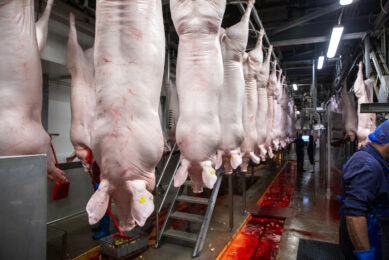RESEARCH: Brucellosis suis discovered in feral swine in NC
Feral pigs in the American state North Carolina have tested positive for Brucella suis, a bacteria that can be transmitted to domestic pigs and people.
A North Carolina State University study discovered the contamination while testing the state’s feral pig populations for several types of bacteria and viruses. The scientists found that about 9% of feral pigs studied in Johnston County and less than 1% surveyed randomly at 13 other sites in the state showed exposure to B. suis.
The discovery is the first since testing began a couple of years ago.
Immune response
Prof Suzanne Kennedy-Stoskopf, a North Carolina State scientist in wildlife infectious diseases, said that testing positive for antibodies to the bacteria means the wild boars feral have been exposed to and developed an immune response against B. suis.
Antibodies do not eliminate B. suis from pigs, so the animals are considered infected and capable of transmitting the bacteria to other pigs and people. The USA has long had a swine brucellosis control and eradication programme. By the 19902, all brucellosis was eliminated from all commercial pig populations.
Brucellosis can lead to abortion in pigs, which is a risk should the bacteria jump from feral hogs to the domestic herd.
The North Carolina State research is published in Journal of Wildlife Diseases.
Related website:
• North Carolina State University











